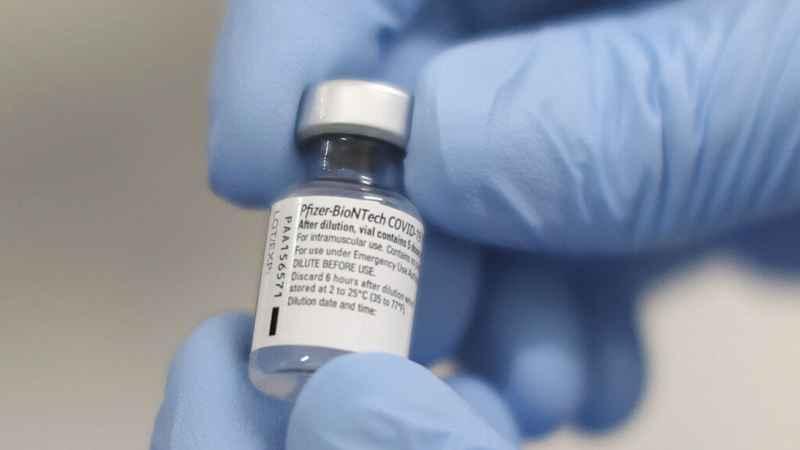Local vaccine specialist calls new Pfizer vaccine data ‘encouraging’
[anvplayer video=”5057817″ station=”998122″]
A vaccine specialist at Children’s Minnesota called Pfizer’s announcement "encouraging" for parents who want to get their children vaccinated this school year.
Pfizer announced new data Monday, saying it shows its COVID-19 vaccine is "safe and effective" for kids 5 to 11 years old.
That age group is currently not eligible for any of the COVID-19 vaccines available in the U.S. Vaccines are available to those ages 12 to 15 under emergency-use authorization.
Pfizer said 2,268 children from 5 to 11 years old participated in the study of its COVID-19 vaccine at more than 90 clinical trial sites.
Those children were given a third of the dose that is given to adults. The company found that dosage produced minimal side effects, similar to what has been seen in adults and older children, and the antibody response was comparable as well.

A vial of the Pfizer-BioNTech COVID-19 vaccine at the Royal Victoria Hospital, in Belfast, Tuesday Dec. 8, 2020.[AP/Liam McBurney/File]
Pfizer will submit the new data to the U.S. Food and Drug Administration "as soon as possible."
"This is encouraging. This is good news because this indicates they’ve dialed in the right dosage for kids," said Joe Kurland, a vaccine specialist and infection preventionist at Children’s Minnesota. "It’s a balancing act. Getting it so it’s an acceptable or tolerable level for kids takes a little bit of time."
Kurland said the announcement comes at a critical time at the start of the school year.
"When kids went back to school, the concern was that we’d see large-scale outbreaks, we’d see large numbers of kids suddenly falling ill at the same time. The delta variant spreads very rapidly, very easily," Kurland explained.
He noted the most severe COVID-19 cases being seen at Children’s Minnesota right now are those over the age of 12. He said only about half of children ages 12 to 15 have been vaccinated.
"We are seeing an increased number of kids being hospitalized right now at our facility at Children’s. All of the kids who are being hospitalized because of COVID illness right now are unvaccinated," Kurland said.
Once Pfizer submits a request for emergency-use authorization, it generally takes several weeks before advisory committees and regulatory agencies make a decision.
"I’m cautiously optimistic we may be looking at giving the vaccine to kids 5 to 11 years of age sometime late next month," Kurland said.
He believes it would mark an important step in ending the pandemic.
"Children make up a large proportion of our population, and we were not going to reach that herd immunity consideration until we had kids vaccinated, in addition to adults," Kurland said.
KSTP health expert Dr. Archelle Georgiou said parents should ask themselves two questions when weighing whether or not their children should receive a COVID-19 vaccine if it becomes available.
"The first question is: What’s the risk of the vaccine? Be informed," Georgiou said. "And the second question is: What’s the risk of my child getting COVID? And be informed about that data as well. Then put both of those on the table to decide whether or not this is the right thing for your child."
Pfizer’s clinical trials for children under the age of 5 are still ongoing, with results expected later this year.